Major updates to the Indexing API - Impact on Job Boards and Aggregators.
Google has quietly introduced some changes to the way the Indexing API works. The majority of these changes impact new job boards and confirm a couple of old hypotheses I have formulated about what Google does not like. The biggest change is that you now have to be approved first to use the Indexing API. What does that mean exactly, and how does that impact job boards? Read on!
What is the Google Indexing API
Website developers primarily use the Google Indexing API to allow Google to quickly and directly notify them about changes to the pages on their websites. This API can be particularly useful for websites with frequently changing content, such as jobs and videos, as it helps expedite Google's search engine's indexing process. Users can inform Google when a page has been added, updated, or removed, which can be especially valuable for time-sensitive content. This works a lot faster than hoping for new jobs to be picked up by sitemaps.
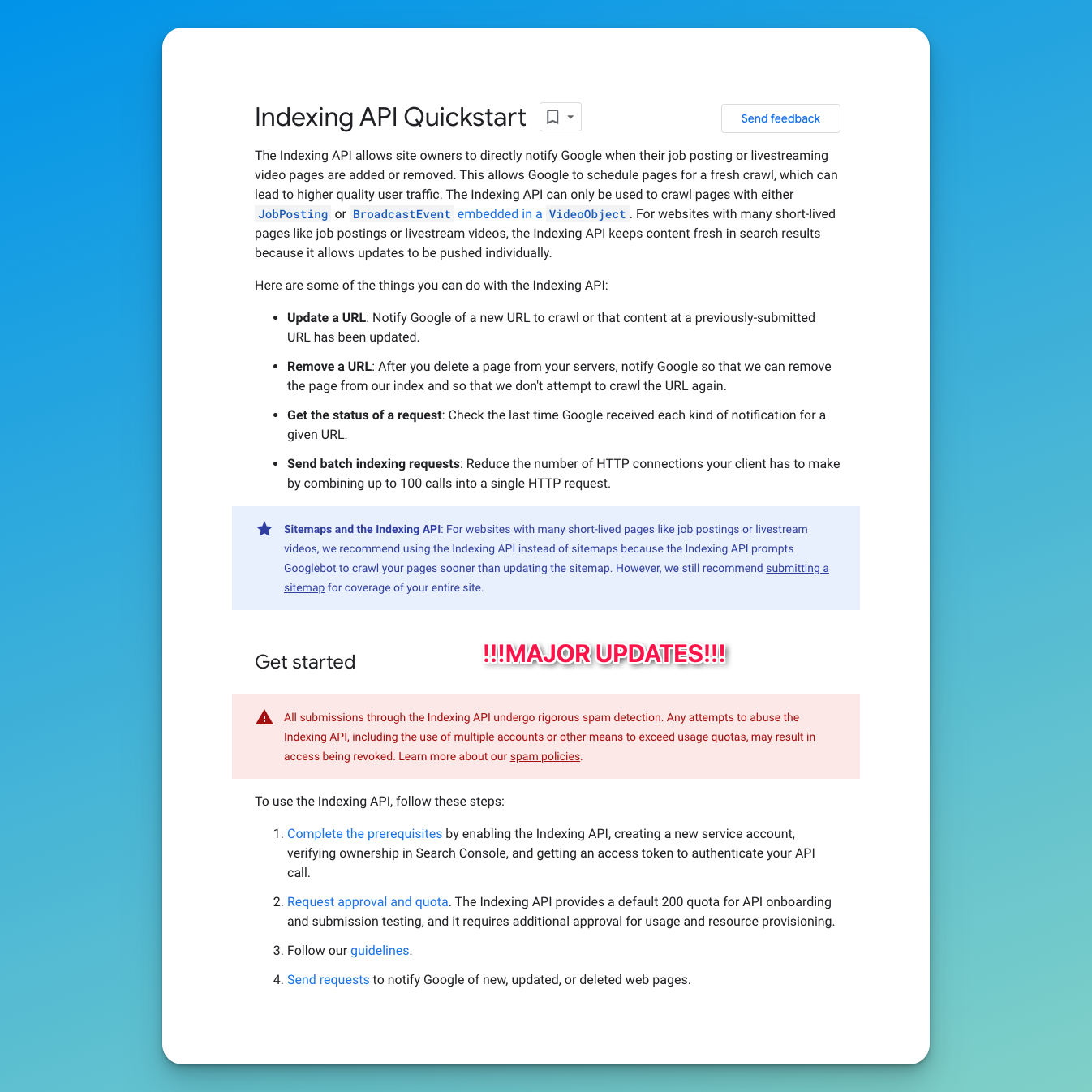
How do job boards use the Google Indexing API
Job boards and aggregators effectively use Google's Indexing API to ensure that their job listings are promptly indexed and appear in Google Search results as soon as possible. This is particularly important for job boards, as the timeliness and relevance of job postings are crucial for job seekers, employers and organic SEO performance.
The process of setting up the Google Indexing API is pretty straightforward: you add the job posting Schema to your job ad pages and then set up the API integration.
The Job Posting schema, part of the schema.org vocabulary, is a structured data format used to describe job listings on the internet in a way that is understandable to search engines like Google. This standardized format helps search engines index job postings accurately and display them in a rich, organized format in search results, enhancing visibility to job seekers.
When a new job is posted, or an existing job is updated or deleted, the job board triggers an API request to notify Google about the event.
What are the changes to the Indexing API
There is one major change that everyone has to be aware of—the Indexing API is not enabled by default—it starts in a test mode, and you have to request access to it. This is a massive change, and if you are not aware of it, it can cost you a bit of organic traffic. In the past, you could start sending jobs immediately.
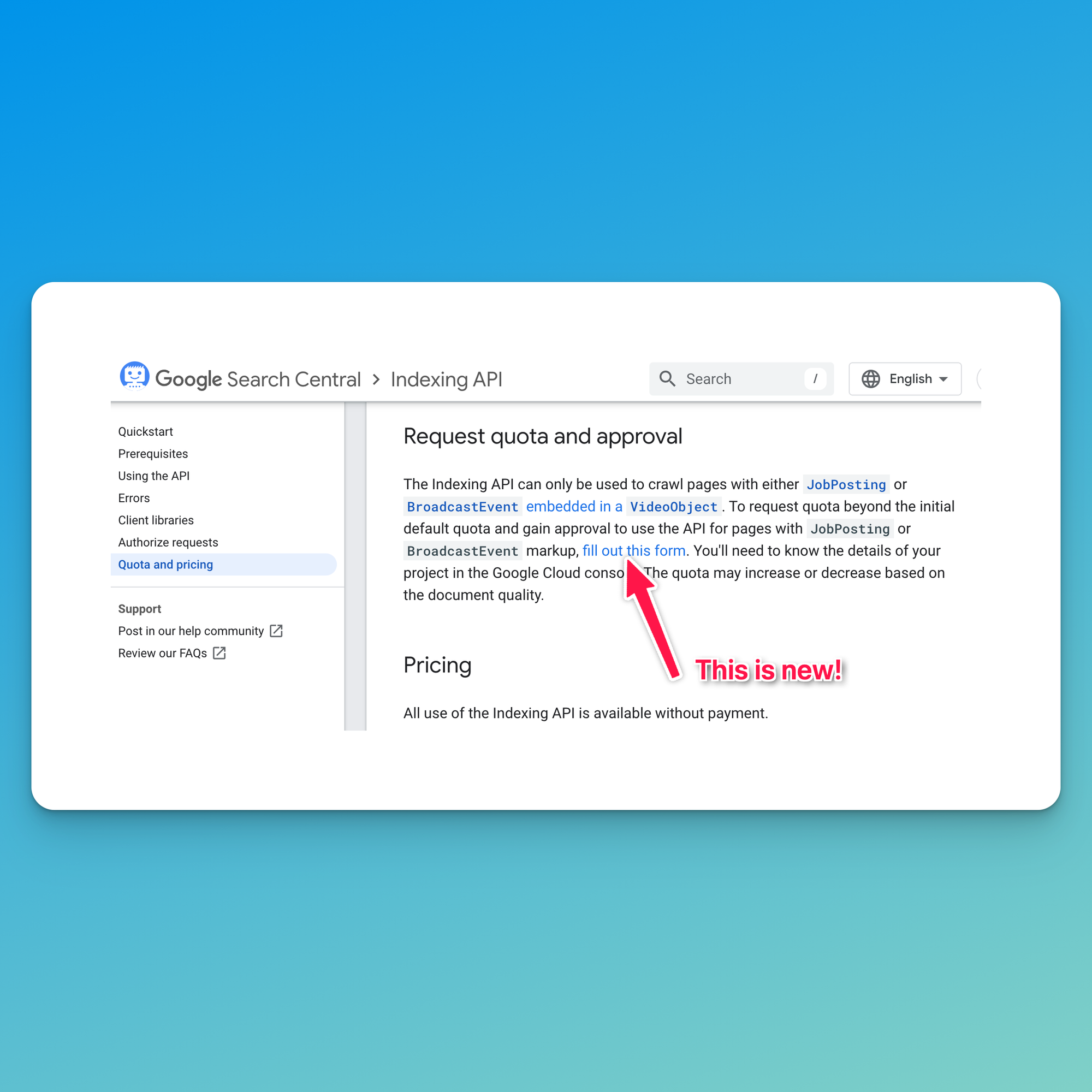
There is another small change related to an old hypothesis I had built over time in my advisory work fixing organic traffic issues. I worked with job boards and aggregators who got hit with a Google Jobs penalty and usually tried to use multiple service accounts.
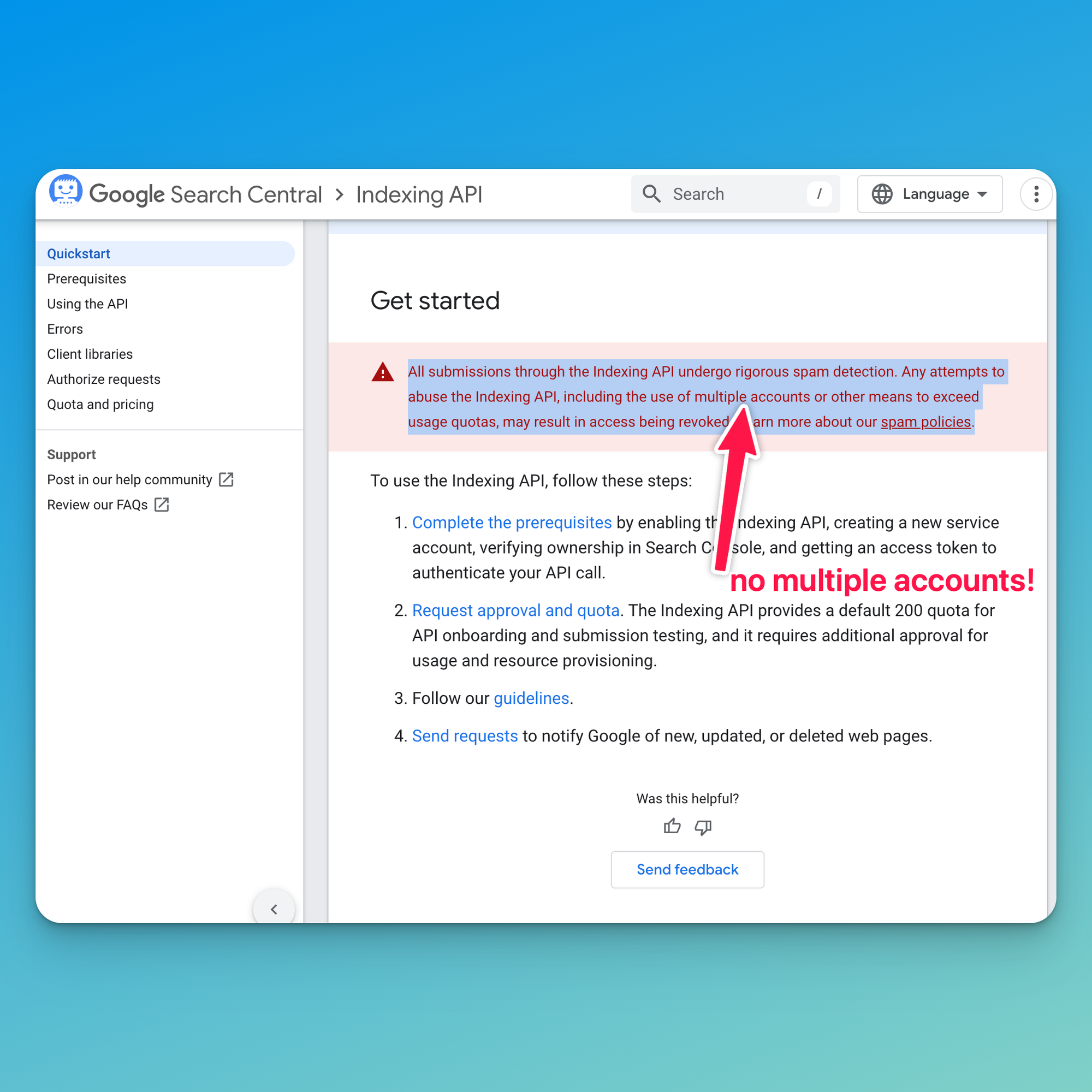
A Google Service Account authenticates computer applications or services, not people, enabling these entities to interact with Google APIs and services on behalf of the application without human interaction. These accounts are crucial for automating tasks and managing permissions granularly, ensuring secure and efficient operations within the Google Cloud ecosystem.
Each service account has a fixed quota. Some job boards tried to create multiple ones to increase their quota and got slapped by Google (=lost their Google Jobs traffic). I think this is now explicit.
Impact on expired jobs handling
Expired jobs are a huge issue for job boards, and implementing the job lifecycle properly can significantly impact organic traffic. However, no one knows what is best.
People used to redirect expired jobs to search result pages in the past, which I can assure you Google does not like (unless you have a high DA site).
So, this is an interesting update that you can only get if you read between the lines. It is related to how expired jobs are handled.
In the past, Google published some very clear policies stating that expired jobs need to be removed from the site; otherwise, you will receive a manual action. But what does this mean?
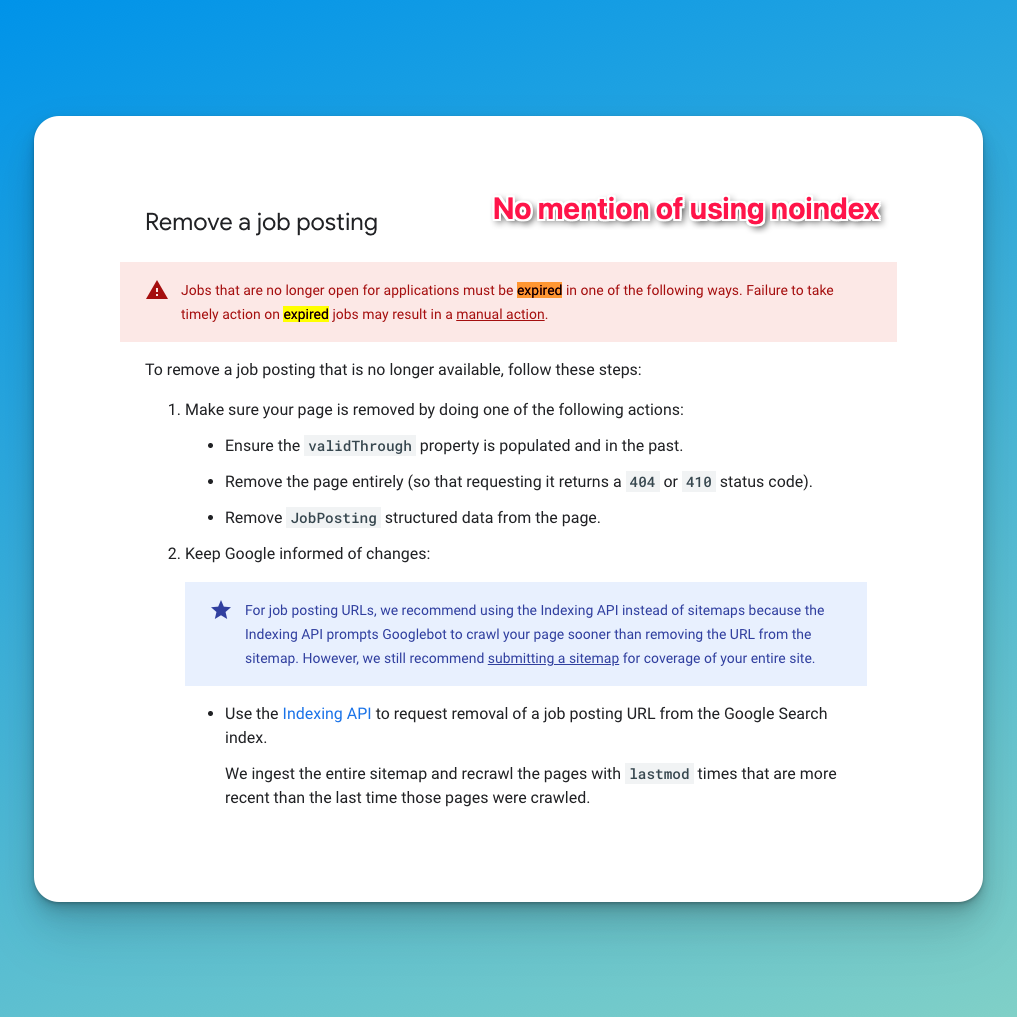
To effectively manage expired job postings on Google, it's essential to promptly update the validThrough property in the JobPosting schema to a past date, remove the JobPosting structured data, or delete the job page entirely to return a 404 or 410 HTTP status. It is enough to do one of them.
Additionally, using Google's Indexing API to expedite the removal of expired listings from search results offers a quicker response than sitemap updates.
So, basically, do one of the three options above and push the API event.
Today, there is a section that also proposes adding a noindex to an expired job ad page as an alternative to a 404/410 status and then notifying the event via the API.
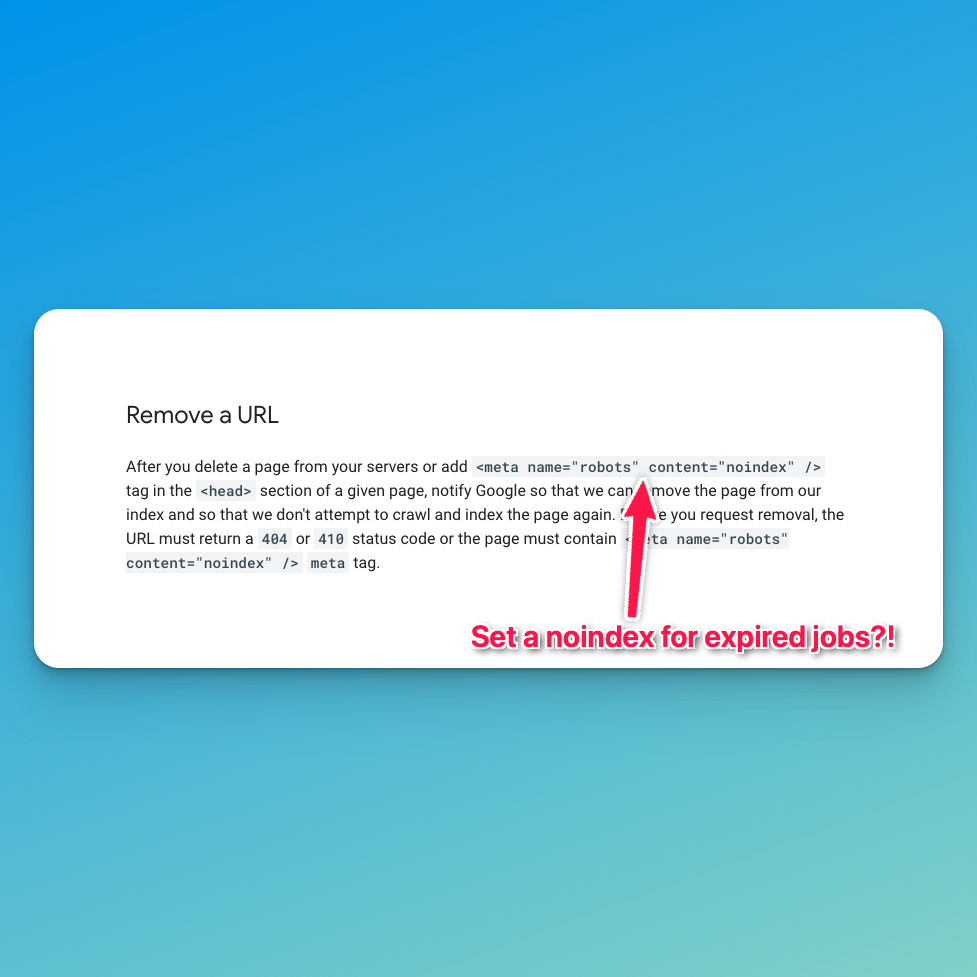
This is an interesting change and I will dig deep into that over the next few weeks, so if you want to get the new post in your email, hit the subscribe button below. As job boards have tens of thousands of expired jobs, handling them properly is crucial.
How do the Indexing API changes impact job boards and aggregators?
The change mostly impacts new job boards that are just launching. In the past, it was just enough to create a service account and start submitting jobs. Well, this is now in the past. You first have to fill out a form and request approval. In the traditional Google way, there is no information as to how they evaluate who gets access, how long the evaluation takes and if you can appeal.
So, at worst, new job boards lose this strategic advantage.
What can you do? Start the process immediately and give detailed information about your project at your request.
Why are they doing it? Using a form to request a quota update was already possible in the past, but using a form to request access? This sounds like spam fighting to me.
What is the impact of the Indexing API changes on other companies?
Google's Indexing API is intended primarily for specific types of content: job postings and Livestream events. The API was designed to allow these sites to quickly update Google Search about changes to their pages, mainly when new jobs are posted or removed and when live events are about to start.
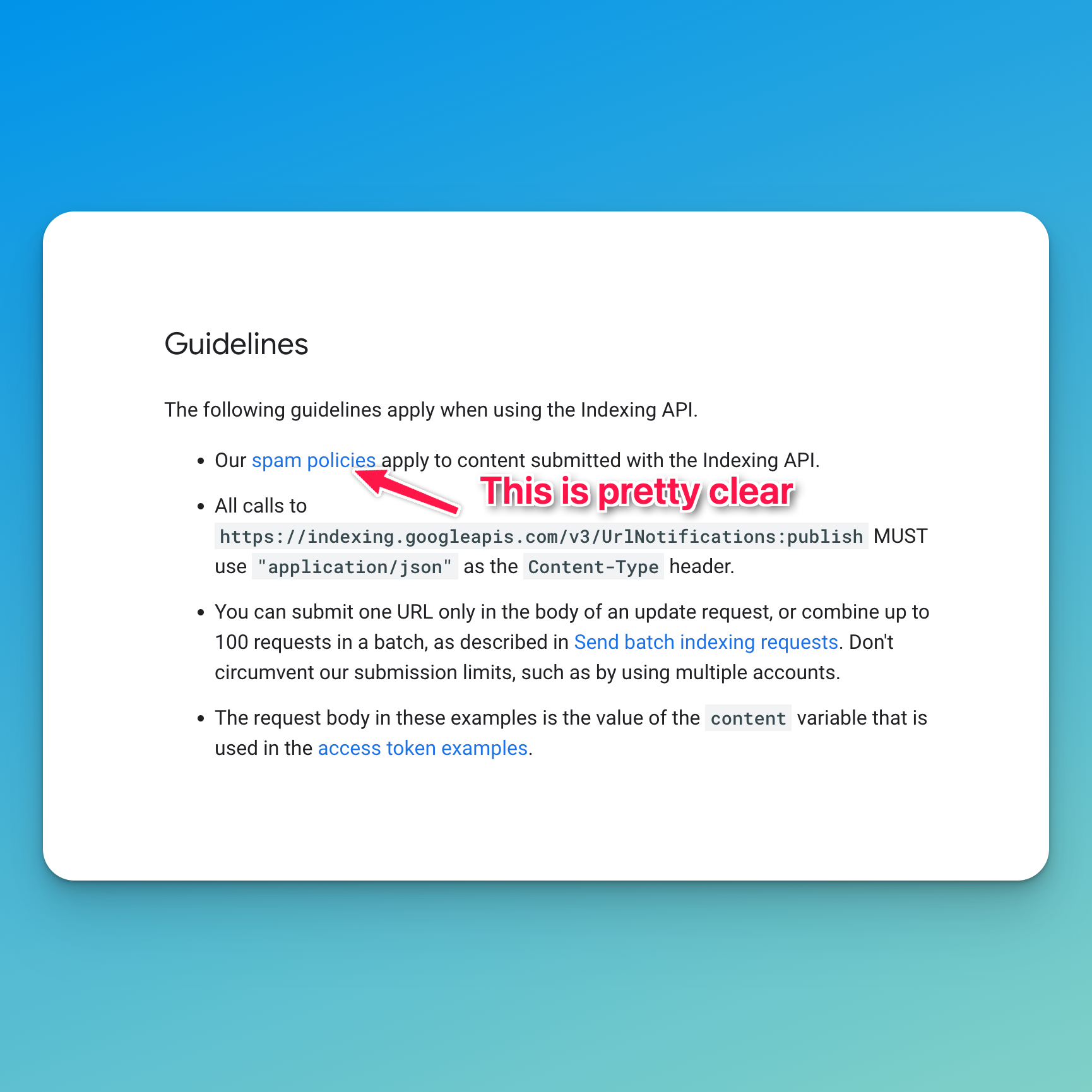
Some people have decided to build companies that offer the same service for other content, such as blog posts and programmatically created SEO pages.
I know that using this for a few URLs per day is usually not a problem, and it works, but I have also written extensively about cases where sites lost their organic traffic when scaled.
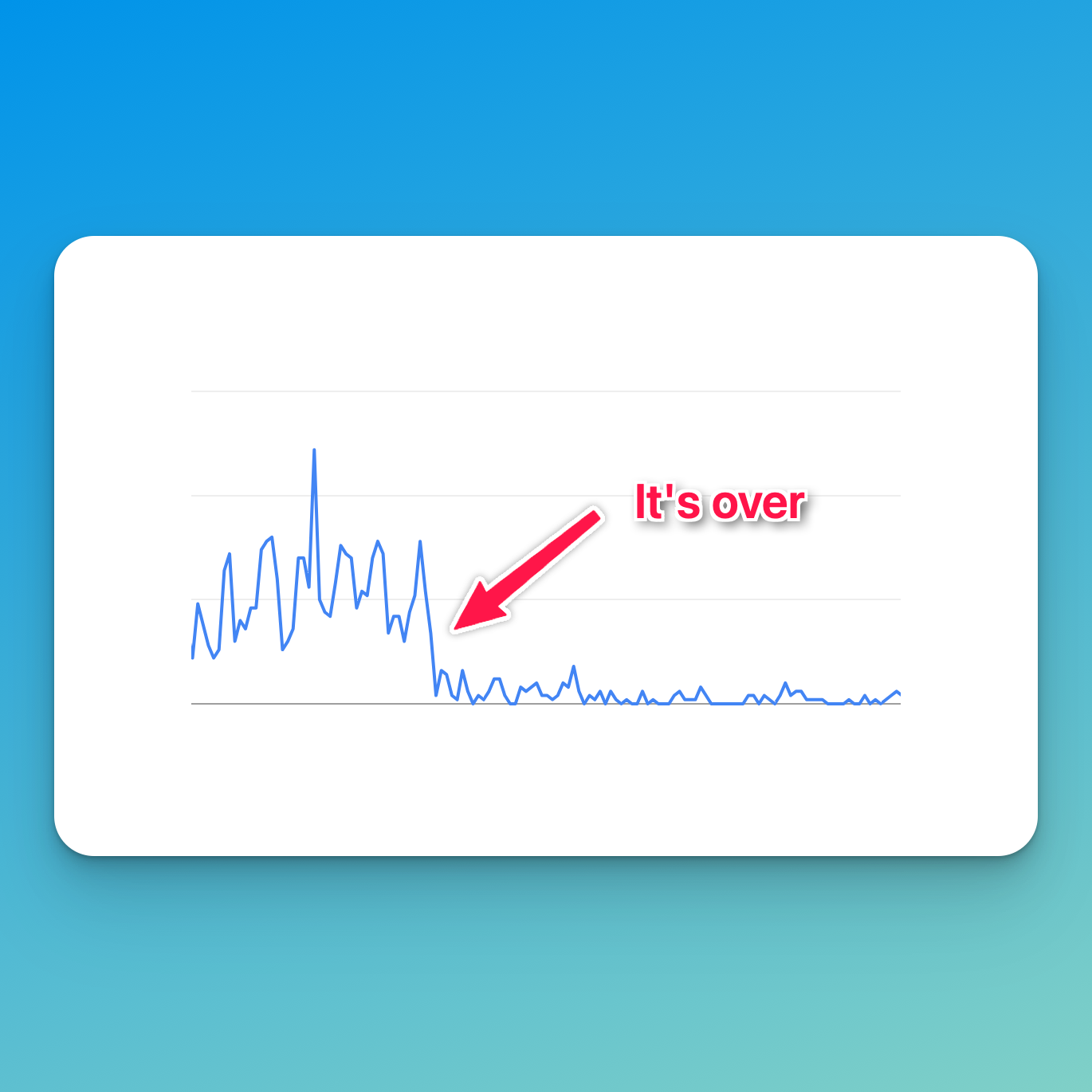
Today, many SaaS platforms offer services utilizing Google's Indexing API for non-job and non-video content. However, using the Indexing API for any type of content other than job postings or livestream videos is against Google's guidelines.
Google is now very vocal about this not being OK, and I expect that sites using these indexing tools will get penalized very fast. If you are using them, my advice is to stop before you lose your organic traffic.
Conclusion
I think the motivation for these changes is mostly due to spammy behaviour by both job boards and other sites. We will see if there are some fixes on Google Jobs search results where this spammy behavior is still visible.
If you enjoy this content and want to learn more about SEO for job boards, feel free to subscribe to my newsletter.